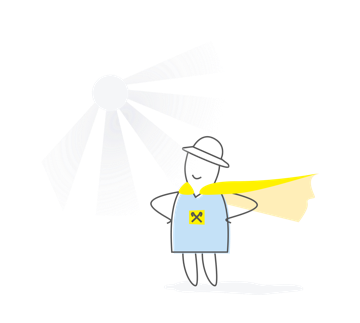From BP under the tree: what legislative changes to expect in 2020
Do not deter our legislators from striving for improvement. In the first days of each new year, Ukrainians, especially business, “unpack” more than one package of innovations. 2020 will not be an exception. Therefore, we will talk about the most important legislative changes regarding entrepreneurs.
1. Updated requirements for filling out settlement documents
On January 13, 2020, the international IBAN bank account number will work in Ukraine in full force. The requisite “Bank Code” will be withdrawn from the settlement documents for the transfer of funds and the form of the payment order. This is because the IBAN international bank account number already includes this information. It is also stipulated that entrepreneurs who use checks submit a payment order to the bank to transfer funds to the "Settlements by Checks" account (an individual has the right to deposit the amount in cash) and an application for the issue of a checkbook (check). From now on, it is forbidden to make corrections to the check and use facsimiles instead of signing.
2. The protection of geographical indications of food and drink names has been implemented
Food and drinks produced not in the region from which their name came from will be outlawed in Ukraine. That is, the Ukrainian producers of “champagne”, “feta”, “cognac” will have to come up with new names for such products (with regard to cognac, this must be done before 2026). At the same time, manufacturers of unique Ukrainian goods also received a mechanism to protect their products. To obtain the legal protection of a geographical indication, you need to register it. The right to do so is the association of persons who produce goods and / or produce and / or process raw materials for goods in a specified geographical location, the special quality, reputation or other characteristics of which are determined by this geographical location. Under certain conditions, one manufacturer (legal entity or individual) can also obtain legal protection of a geographical indication.
3. Mandatory PPO for small businesses and the implementation of the cache back mechanism
According to lawmakers, cash registers are the best way to get a business out of the shadows. Therefore, from 04/19/2020, all business entities that carry out cash and / or non-cash transactions (including individuals-entrepreneurs) will be required to use settlement registrars. However, there are a few exceptions and steps for introducing such a duty.
So, PPO will not apply single tax payers of the first group. Entrepreneurs with an income of up to 1 million UAH until 01.10 2020 are also exempted from the mandatory use of PPO. However, this does not apply to those who sell technically sophisticated household goods that are subject to warranty repairs, medicines, medical devices and provide paid medical services. Note that PPO can be both ordinary devices (POS-terminals), and software. And even a QR code can fulfill the role of a settlement document.
4. The liability of employers for violation of labor legislation is relaxed
Since fines must fulfill a precautionary rather than punitive function, employers will no longer be heavily punished for violating labor laws. Moreover, a new mechanism has been introduced - an employer warning.
So for the actual admission of an employee to work without an employment contract (contract), registration of an employee for part-time work if the work is actually performed, the full working time set at the enterprise and payment of salary (remuneration) without accruing and paying taxes and ERUs, committed for the first time, they will warn in writing.
If the specified offense is committed again within 365 days from the date of the written warning, the fine will be four minimum wages established by law at the time the violation was discovered, for each employee in respect of whom the violation was committed. Agree, this is not a fine of 30 minimum wages, which were paid by employers in similar situations as early as 2019.
5. Reduced pressure on business from market surveillance authorities
Safety control of non-food products for consumers and users, the fight against unfair competition and with the practices of illegal or semi-illegal production and import of non-food products will occur without excessive pressure on the business.
In particular, market supervisors have been deprived of the authority to demand from the business an inexhaustible list of documents during verification. Also excluded from the list of mandatory documents are those that often do not exist at all, but are required by regulatory authorities.
What is nice, eliminated fines for formal violations. For example, for the absence of a declaration of conformity or incorrect labeling, when the conformity mark is applied not to the goods, but to the packaging. At the same time, fines for serious violations have been significantly increased. For example, the inadmissibility of controllers to check.
Thanks to this Law, Ukraine approached the conclusion of the Agreement on Conformity Assessment and the adoption of industrial products (ASAA Agreement) with the EU. And this will open the European market for Ukrainian producers of non-food products.
6. New minimum wage and related taxes, fees
From January 1, 2020, the monthly minimum wage is set at 4723 UAH, and at the hourly rate - 28.31 UAH. Further payments depend on these values:
Real estate tax other than land. The tax rates for residential and / or non-residential property owned by individuals and legal entities are established by decision of the village, town, city council or council of the united territorial communities created in accordance with the law and a long-term plan for the formation of community territories depending on location ( zonality) and types of such real estate. The maximum rate in 2020 cannot exceed UAH 70.85 per 1 square meter of the tax base.
Transport tax. To determine the object of taxation using the valuation. That is, the average market value of a car, from the year of manufacture of which no more than five years have passed (inclusive), the average market value of which is more than 1 million 771 thousand 125 UAH. Recall that individuals and legal entities that own such passenger cars must pay 25 thousand UAH for each such passenger car.
License Fee. In total, a one-time fee in the amount of one subsistence minimum established for able-bodied persons is charged for the issuance of a license, unless a different fee is established by law. Therefore, from January 1, 2020, the size of the license fee is 2102 UAH, from July 1 - 2197 UAH, from December 1 - 2270 UAH.
7. New rules for organic production and turnover of organic products
Legal entities or individuals - entrepreneurs who are engaged in the production and / or circulation of products in accordance with the requirements of legislation in the field of organic production, circulation and labeling of organic products, from June 6, 2020 should be guided by the new detailed rules for organic production and circulation of organic products. This applies to the following sectors of organic production:
- organic crop production (in particular seed production and seedling cultivation)
- organic animal husbandry (in particular poultry farming, beekeeping)
- organic mushroom growing (in particular the cultivation of organic yeast)
- organic aquaculture;
- production of organic seaweed;
- the production of organic food products (in particular organic winemaking)
- production of organic feed;
- harvesting of organic objects of the plant world.
8. Entrepreneurs are protected from illegal actions or inaction of permitting bodies
Now officials will actually be punished for their violations committed during the issuance of permits, or for illegal not issuing permits. Moreover, the size of the fines is quite impressive - from 850 UAH to 1700 UAH. And for the repeated violation committed by this person during the year, the administrative fine will be 1700-2550 UAH.
Therefore, the administrative responsibility of officials of permitting bodies was introduced, in particular, for:
- violation by the licensing authority of the deadlines established by law for re-issuing, annulment, refusal to issue a permit document, registration of a declaration of conformity of the material and technical base of a business entity with legal requirements. Previously punished only for violation of the deadlines for issuing permits;
- issuance by the permitting body of a permitting document without obtaining approvals, conclusions and other documents required by law to issue a permitting document;
- failure to submit or untimely submission by the licensing authority to the USR of the decisions taken, submitted to the licensing authority statements and declarations of conformity of the material and technical base of the economic entity with legal requirements and the like.
Although this responsibility has been introduced since October 2019, business will certainly feel positive changes in the work of licensing authorities in 2020.















